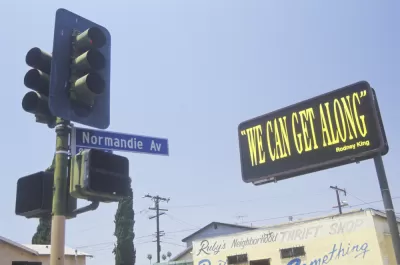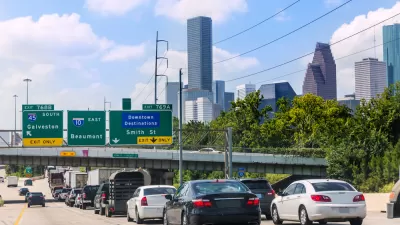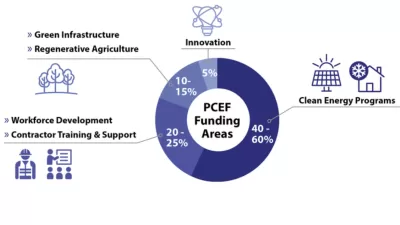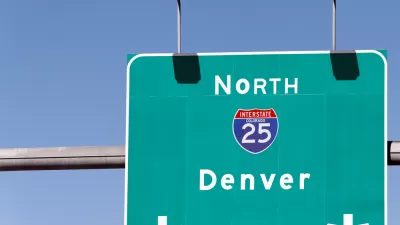Past recoveries have only exacerbated structural inequalities. The recovery from the current economic and social crises can't afford to make the mistakes, according to a recent paper from researchers at the Brookings Institution.

A new paper by Hanna Love, Tunua Thrash-Ntuk, and Jennifer S. Vey argues for a community-led action plan to address structural inequity during COVID-19 recovery.
"This paper argues that without economic recovery in communities facing disproportionate structural harm, there can be no real recovery at all. For our cities, regions, and nation as a whole to emerge stronger from this crisis, we must not only address the symptoms of disinvestment that COVID-19 has magnified, but holistically tackle their systemic root causes through locally empowering community investment."
To further those ambitious goals, the paper offers "guidance for community, city, and regional leaders to work across multiple levels of governance and policy domains—bridging community, economic, and workforce development efforts, among others—to advance community-led recovery strategies that address persistent structural inequities and expand community wealth and opportunity over the long term."
Past recoveries have only exacerbated inequality, according to the paper (a point made recently in an opinion piece about the consequences of the real estate crash and fiscal crisis of the Great Recession, when private equity firms and other Wall Street money bought up distressed real estate assets all over the country). The shortfalls of previous recovery efforts, according to the paper, can be traced to the disconnect between policy makers and community members.
"True economic recovery demands a more integrated, community-led, place- and people-centered approach—one designed to build upon community strengths and break down the structural inequities that have left communities like South LA disconnected and disenfranchised for far too long," write the authors of the paper.
Specific actions to implement a community-led approach to economic recovery follow in the source article.
FULL STORY: No more status quo: A community-led action plan for addressing structural inequity during COVID-19 recovery

Alabama: Trump Terminates Settlements for Black Communities Harmed By Raw Sewage
Trump deemed the landmark civil rights agreement “illegal DEI and environmental justice policy.”

Study: Maui’s Plan to Convert Vacation Rentals to Long-Term Housing Could Cause Nearly $1 Billion Economic Loss
The plan would reduce visitor accommodation by 25% resulting in 1,900 jobs lost.

Planetizen Federal Action Tracker
A weekly monitor of how Trump’s orders and actions are impacting planners and planning in America.

Waymo Gets Permission to Map SF’s Market Street
If allowed to operate on the traffic-restricted street, Waymo’s autonomous taxis would have a leg up over ride-hailing competitors — and counter the city’s efforts to grow bike and pedestrian on the thoroughfare.

Parklet Symposium Highlights the Success of Shared Spaces
Parklets got a boost during the Covid-19 pandemic, when the concept was translated to outdoor dining programs that offered restaurants a lifeline during the shutdown.

Federal Homelessness Agency Places Entire Staff on Leave
The U.S. Interagency Council on Homelessness is the only federal agency dedicated to preventing and ending homelessness.
Urban Design for Planners 1: Software Tools
This six-course series explores essential urban design concepts using open source software and equips planners with the tools they need to participate fully in the urban design process.
Planning for Universal Design
Learn the tools for implementing Universal Design in planning regulations.
Caltrans
Smith Gee Studio
Institute for Housing and Urban Development Studies (IHS)
City of Grandview
Harvard GSD Executive Education
Toledo-Lucas County Plan Commissions
Salt Lake City
NYU Wagner Graduate School of Public Service





























